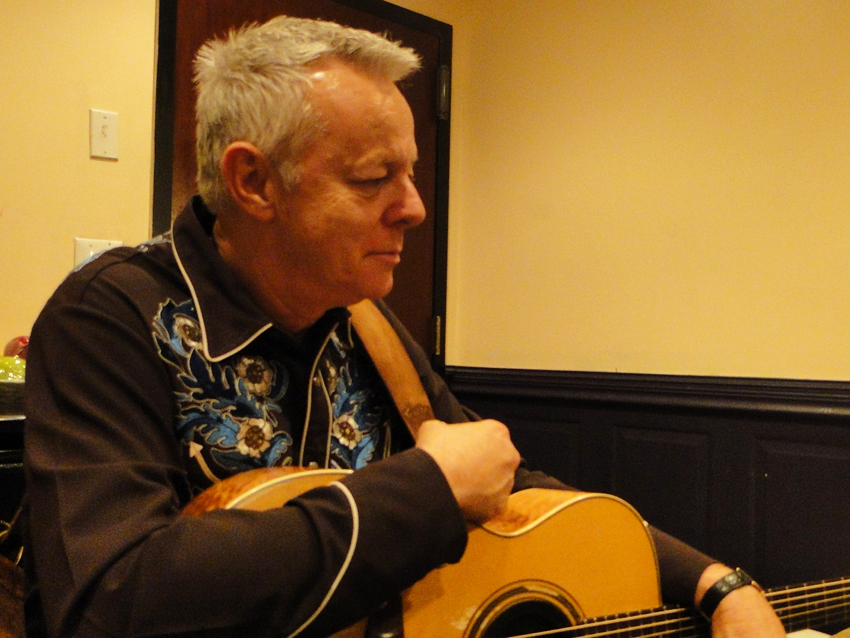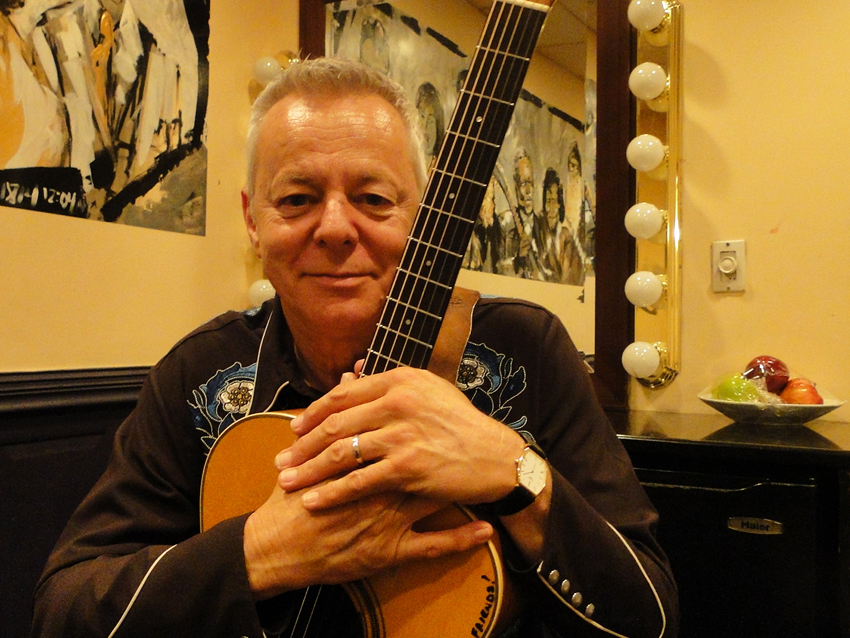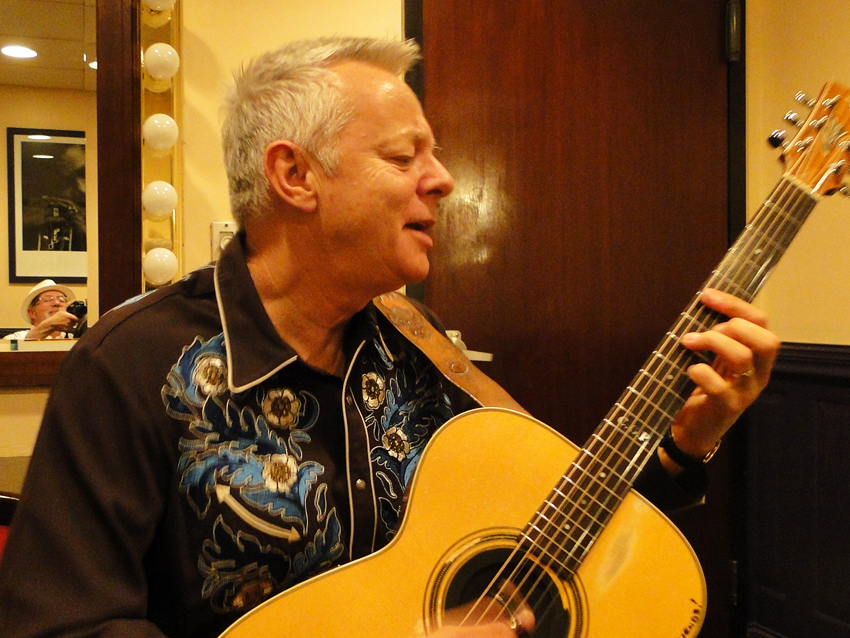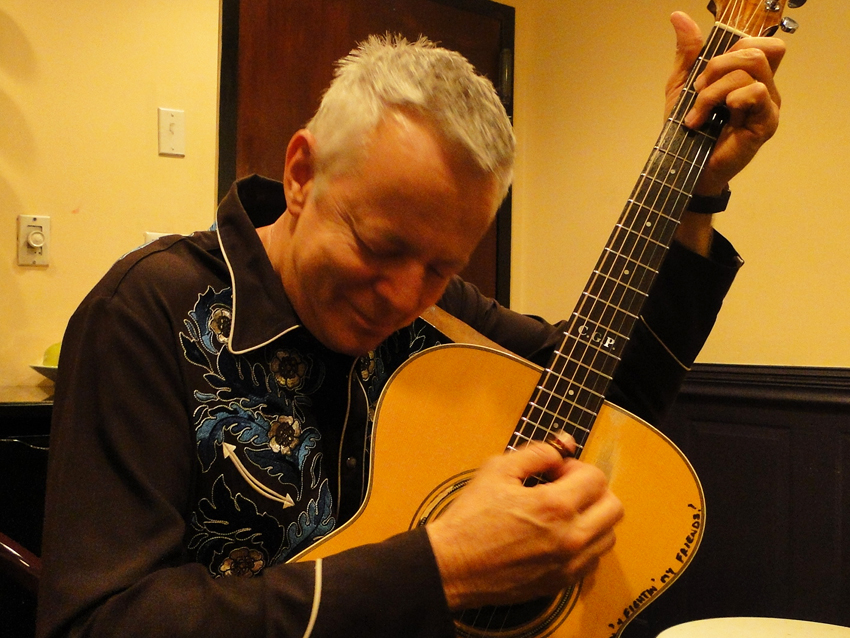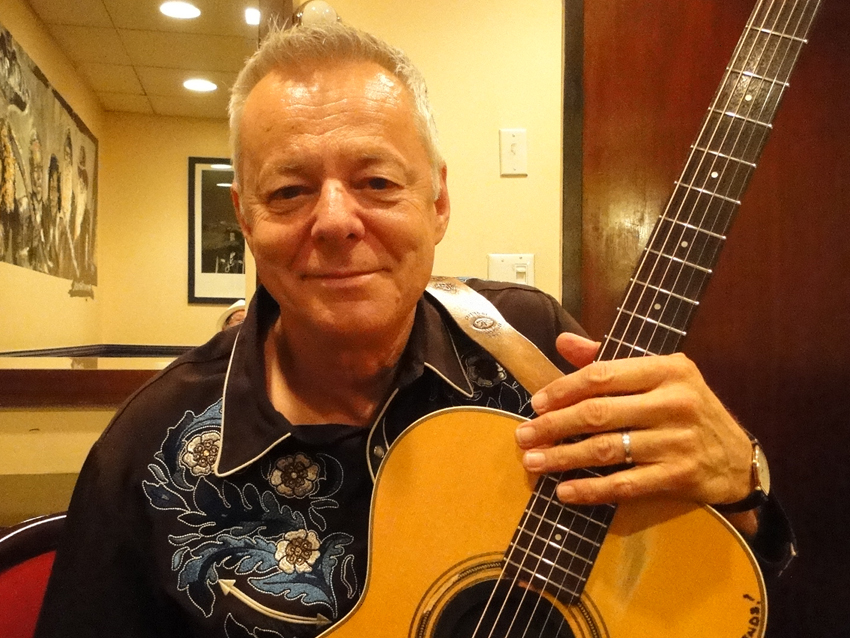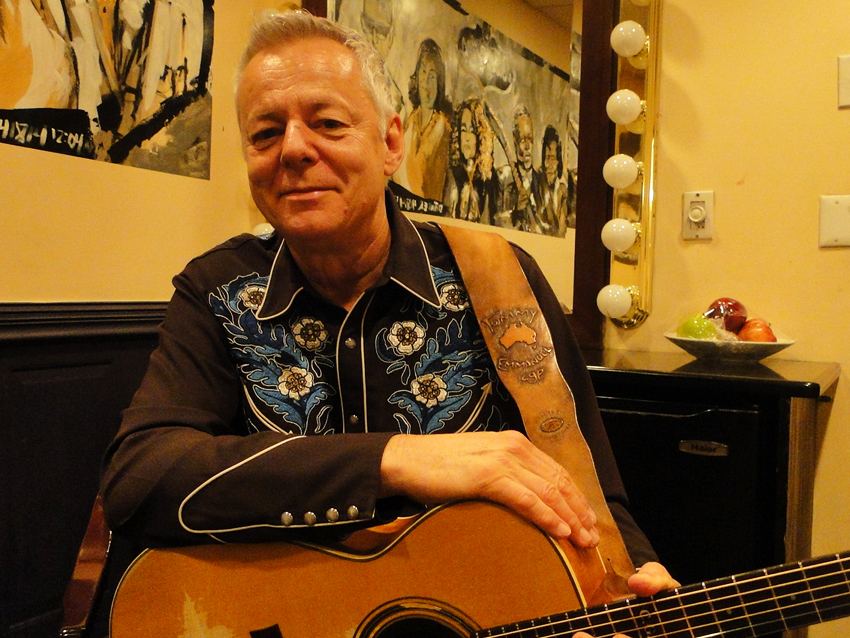
VIDEO: Tommy Emmanuel's top 5 tips for guitarists
From Monday, July 28, to Friday, August 1, guitar master Tommy Emmanuel will host his first-ever Tommy Emmanuel Guitar Camp USA. The fully immersive event will be held at the Blue Moon Resort in Big Indian, New York. Emmanuel, along with teachers Joe Robinson, Jim Nichols and John Knowles, will conduct workshops and performances that can accommodate players of any level. "It's four nights and four days of picking, strumming, creating and storytelling," Emmanuel says.
Before the first of his three-night, sold-out stand at BB King's in new York City, Emmanuel sat down with MusicRadar to talk about the upcoming camp.
You've done this kind of thing before – a guitar camp.
“That's right. This is my first USA camp under my own name. Usually, I teach at Jorma Kaukonen' camp, but we wanted to do something a bit bigger, and I wanted to have some of my cohorts and fellow teachers with me. I’ve been doing a camp in Sydney, and it’s always been a lot of fun. People come from all over; we average 120 people at each camp, which is why I have four teachers. And I’m so thrilled to be doing it at the Blue Moon Resort up in the Catskills. That area of New York is perfect in July – not too hot, not too cold. It’s lovely.”
Your “cohorts” – why did you pick these guys?
“Because they’re really great at what they do, and they’re diverse. We give everybody a set of things to learn, but there’s a lot of interaction. On some lessons, two teachers will be together. One thing I like about this is, I’ll get two teachers on stage in the morning, and I’ll interview them. I won’t tell them what I’m going to ask, so it’s very spontaneous, and it’s really interesting for the students.”
Is there a special kind of personality for somebody to be a great teacher? Sometimes brilliant musicians aren’t always the best instructors.
“That’s right. I have to say, I’m probably not a great teacher, but I think Jim Nichols is. John Knowles is a really good teacher and a wonderful communicator. Same with Joe Robinson – he’s patient, kind and just a great people person.
“As for me, people want to hear my stories. I’m very strict about the way I teach. I always tell people, ‘You can find another way of doing this, but I’m going to show you what I consider to be the right way.’ There’s always reason behind what I teach. The main thing that I tell people is ‘This is not a competition. We’re all in this together, and we’re hear to help each other.’"
Are people ever intimidated by you at a camp? Let’s face it: You’re Tommy Emmanuel CGP [Tommy laughs]. You’re not some guy they found in a newspaper.
“If they are, then I try to break that down and dispel it right away. I’m just like everybody else: I play because I love to play too. I just happen to make a good living at it, and I get to go around the world doing it, so I’m very fortunate. But it didn’t happen overnight, and so I can tell people what it takes to work in this business. That’s a good thing.
"I do one-on-one time, too. When I teach a camp, I never stop. When I'm not teaching a group, I'm seeing people individually, because I believe that each person has something that they might want to be between me and them. Or maybe somebody's written a song but they're too shy to play it for everybody. I try to make sure that people can feel comfortable with themselves and their music – and with me."
What kinds of people sign up for your guitar camps?
“All kinds – all levels and skills. Some people just want to have a good time and observe, but they want to see what they can get out of it. Other people are waiting on every word, and they want to learn. We encourage everybody, no matter what level they’re at. We build in jam time every day, and we encourage people to help each other and teach each other. It’s wonderful to see people lose their inhibitions and communicate through music. We want them to leave with new skills and knowledge but also some new songs. Songs are what inspire people to play, and they're what we all share.”
For more information on Tommy Emmanuel's Guitar Camp USA and to sign up, visit the official website. On the following pages, Emmanuel runs down his Top 5 Tips For Guitarists.
Joe is a freelance journalist who has, over the past few decades, interviewed hundreds of guitarists for Guitar World, Guitar Player, MusicRadar and Classic Rock. He is also a former editor of Guitar World, contributing writer for Guitar Aficionado and VP of A&R for Island Records. He’s an enthusiastic guitarist, but he’s nowhere near the likes of the people he interviews. Surprisingly, his skills are more suited to the drums. If you need a drummer for your Beatles tribute band, look him up.
